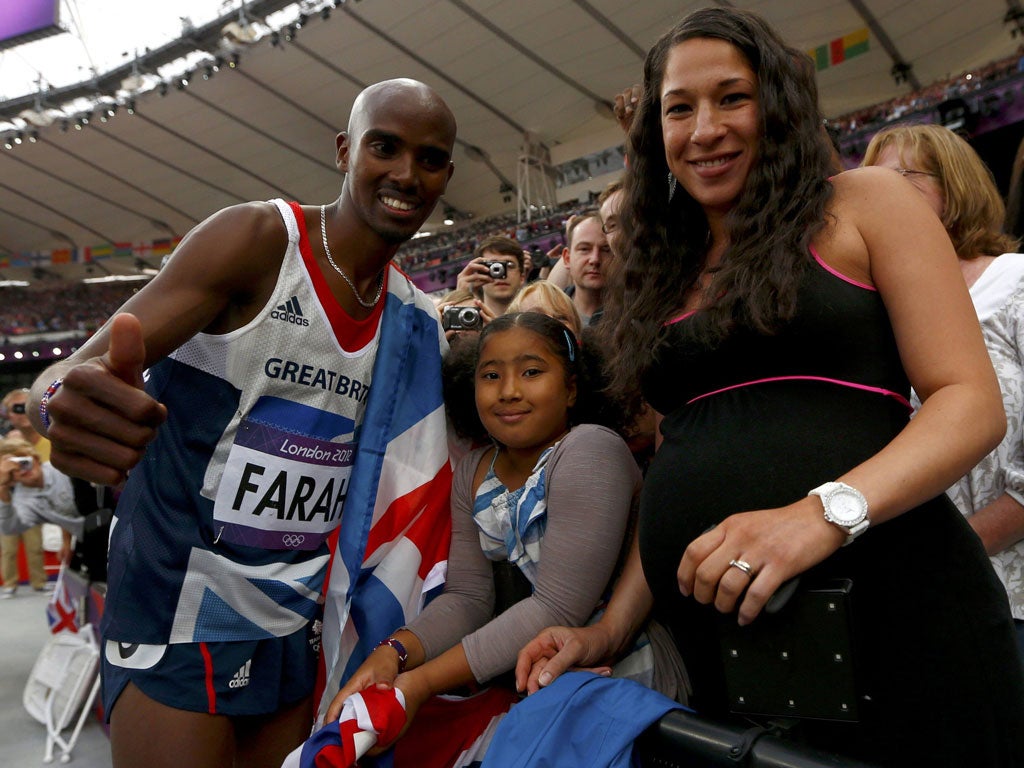James Lawton: Mo Farah's brave triumph that moved the nation
It was the union of one man and a nation marvelling at every stride

Your support helps us to tell the story
From reproductive rights to climate change to Big Tech, The Independent is on the ground when the story is developing. Whether it's investigating the financials of Elon Musk's pro-Trump PAC or producing our latest documentary, 'The A Word', which shines a light on the American women fighting for reproductive rights, we know how important it is to parse out the facts from the messaging.
At such a critical moment in US history, we need reporters on the ground. Your donation allows us to keep sending journalists to speak to both sides of the story.
The Independent is trusted by Americans across the entire political spectrum. And unlike many other quality news outlets, we choose not to lock Americans out of our reporting and analysis with paywalls. We believe quality journalism should be available to everyone, paid for by those who can afford it.
Your support makes all the difference.Twice he has done it now, taken these Olympics to a passion and a joy which have made them so utterly remarkable, but last night he was alone in his courage and quite sublime judgment.
If Usain Bolt has been the phenomenon of these Games, the epicentre of world attention, Mo Farah has maybe been its heart. The double gold medallist, a new member of the pantheon that includes such legendary names as Emil Zatopek, Vladimir Kuts and Lasse Viren, carried a whole nation with him when he won the 5,000m to go along with last week's triumph in the 10,000m.
Every stride he made to the winning line brought new levels of acclaim and anticipation and when he crossed it clear of his nearest pursuer, Dejen Gebremeskel, one of six East Africans who had run faster times, you knew this was a feat that would never leave the memory of anyone in these islands who cares about supreme achievement in sport.
This was one of those feats, alternatively brave and entirely practical, that moves the heart of a nation. If you imagined for a fraction of time that this might carry a hint of fantasy, of emotion pitched too high because of the extraordinary atmosphere in the stadium, you had only to hear the thunder of the crowd and see the tears, yes the tears, because this was no ordinary triumph on a track.
It was the statement of a man who escaped as a boy from one of the most hazardous parts of Africa and made a new life in a country that is now trying to measure the pride that comes when it claims him for its own.
Last week he shared his glory – and huge happiness – with Jessica Ennis and Greg Rutherford on a night which weathered observers swear carried them beyond any previous experience of what sport can do to the emotions if it is fine enough, if it stretches those who create it to the very limits of their ability, and if you can see that nothing has been left at home.
When the 29-year-old Farah did it for a second time he rolled on the track in ecstasy after carefully wrapping himself in the Union flag. Later, he talked of his sense of achievement when he considered what this meant to his adopted country and to his own family – and then he began to reach out for the meaning of what he had done and how he would always fight to keep the values that had brought him to this moment.
"We are expecting girls, unless they have arrived already," he said, "and so this is why I had to win two golds. The crowd were unbelievable, the way they carried me forward. I will never forget their help – and I will never forget this feeling I have now at the end of the journey I've been on.
"It is the feeling that comes to you when you have done all the work you knew was necessary - and you can see the reward.What I have learned is that if you put in all the graft, well, anything is possible."
What was achieved last night was astonishing in both its force and its confidence. Three Ethiopians and two Kenyans lined up against the frail, almost bird-like man who hardly seems big enough to house a heart so impervious to the concept of being daunted. Farah had been charged by no less a master of the track than Sebastian Coe with the job of providing the great finale to these games. "It would be the perfect ending," said Lord Coe, "and I think of all people Mo Farah can do it. He wants it badly, I can see that, and I believe he is not only good enough but also strong enough and brave enough.
"I know Mo and I know his coach Alberto Salazar and I know they're not going to say, 'we've got one gold, we've done the job'. They'll be very disappointed if they go away without that second gold."
As the race wore on, as the Ethiopians and the Kenyans conspired to thwart him, Farah had the measure of every development. In such a tactical race the time was always going to be irrelevant and there is only one measurement that need linger in the record, a final lap of 52 seconds. Farah fashioned it with exquisite timing.
The field had been outfoxed, outrun and exposed to an experience which at times stretched beyond anything they could scarcely have imagined.
What it was, was the union of one man and a nation marvelling happily at his every stride.
Join our commenting forum
Join thought-provoking conversations, follow other Independent readers and see their replies
Comments